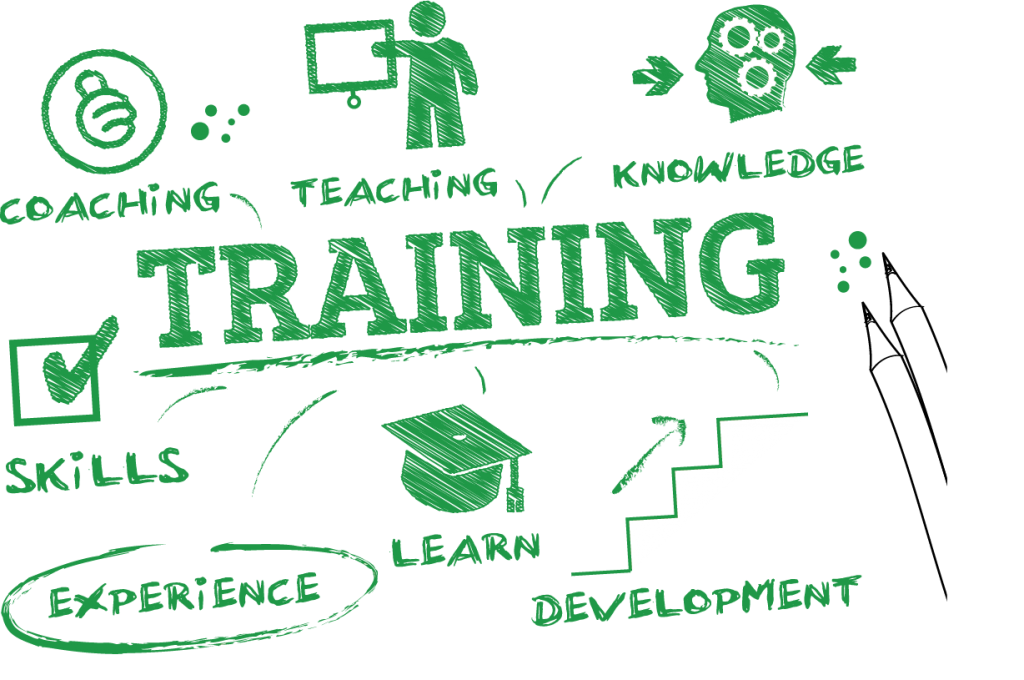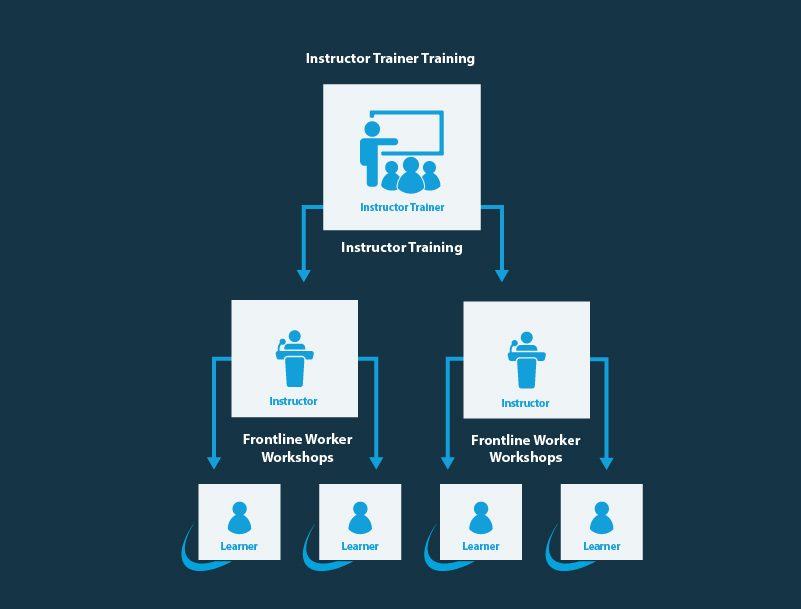How to Become a Train the Trainer Course: Expert Tips
Are you ready to elevate your skills and make a real impact in the world of training? Imagine becoming the go-to expert who not only understands the intricacies of effective training but also empowers others to do the same.
With the right guidance and strategies, you can become a master at training trainers, transforming educational experiences for countless learners. You’ll discover the essential steps to embark on this rewarding path, learn practical tips that resonate with your unique learning style, and uncover the secrets that successful trainers use to engage and inspire.
Dive in and unlock the potential to not only enhance your career but also make a lasting difference in the lives of others.

Importance Of Train The Trainer Courses
Train the Trainer courses hold significant value in today’s learning environments. These courses equip trainers with essential skills and knowledge. They prepare trainers to deliver effective and engaging lessons. Understanding the importance of these courses can lead to better training outcomes.
1. Enhancing Communication Skills
Effective communication is key in training sessions. Trainers learn to convey information clearly. They learn to listen actively and respond to queries. This improves overall understanding among trainees.
2. Building Confidence In Trainers
These courses help build confidence in trainers. A confident trainer delivers content with conviction. This instills trust and engagement in learners. Confidence leads to better learning experiences.
3. Developing Structured Content Delivery
Structured content is crucial for effective learning. Train the Trainer courses teach how to organize content. Trainers learn to create logical flow in their sessions. This ensures learners grasp information efficiently.
4. Encouraging Interactive Learning
Interactive learning boosts engagement and retention. Trainers learn to incorporate activities and discussions. This keeps learners involved and attentive. Interactive sessions lead to deeper understanding.
5. Adapting To Different Learning Styles
Every learner has a unique learning style. Train the Trainer courses teach adaptability. Trainers learn to tailor their approach to various styles. This ensures all learners benefit from training sessions.
6. Evaluating Training Effectiveness
Assessing training outcomes is essential for improvement. Trainers learn to evaluate their sessions effectively. They gather feedback and make necessary adjustments. This ensures continuous improvement in training quality.

Key Skills For Trainers
Becoming a trainer demands a unique set of skills. These skills ensure effective teaching and learning. Aspiring trainers should focus on communication, adaptability, leadership, and motivation. Each skill plays a vital role in delivering impactful training sessions.
Effective Communication
Clear communication is key for trainers. It helps convey ideas effectively. A trainer must articulate thoughts clearly. Listening is also crucial for understanding trainees’ needs. Engaging with participants keeps the session lively. This ensures a productive learning environment.
Adaptability And Flexibility
Training sessions can be unpredictable. Trainers must adapt to changing circumstances. Flexibility allows trainers to tailor their approach. Different learners have different needs. Adjusting methods enhances learning experiences. This skill ensures each participant gains valuable insights.
Leadership And Motivation
Leadership guides and inspires trainees. It encourages participation and curiosity. A motivated trainer fosters enthusiasm among learners. Setting clear goals drives progress. Positive reinforcement boosts confidence. This creates a supportive learning atmosphere.
Course Curriculum Essentials
The heart of any successful Train the Trainer course lies in its curriculum. It’s not just about what you teach but how you teach it. The course curriculum essentials are the backbone of effective training that empowers trainers to engage learners, assess their progress, and utilize technology for a dynamic learning experience. With these elements, you can create a curriculum that is not only informative but transformative. Let’s dive into what makes these essentials truly essential.
Designing Engaging Content
Engaging content is crucial to keep your audience interested. It’s about creating a connection that makes information stick. You can achieve this by including real-life examples and interactive activities.
Think about a time when you were captivated by a presentation. What made it stand out? Was it the storytelling or the visuals? Consider using these elements in your training sessions.
Don’t shy away from asking questions that provoke thought. This encourages participants to reflect and participate actively, making learning more effective.
Assessment And Feedback Techniques
Assessments aren’t just tests; they’re tools to gauge understanding. They help you identify areas where learners excel and where they need support.
Feedback should be constructive and timely. It guides learners to improve and reassures them that they’re on the right path. Use a mix of verbal and written feedback to cater to different learning styles.
Consider using peer assessments. They encourage collaboration and provide diverse perspectives, enhancing the learning experience for everyone involved.
Incorporating Technology In Training
Technology can elevate your training sessions to new heights. Tools like interactive software and digital platforms make learning more accessible and engaging.
Think about incorporating video content or virtual reality simulations. These can provide hands-on experience without the logistical challenges of real-world scenarios.
Are you using technology to its full potential in your training sessions? It’s worth exploring the latest tools available to enhance your curriculum and keep it fresh and relevant.
Creating a powerful Train the Trainer course is an exciting challenge. By focusing on these curriculum essentials, you can ensure that your sessions are not only informative but also transformative for your learners.
Certification And Accreditation
Certification is crucial for trainers. It validates skills and expertise. Accreditation ensures training quality meets standards. Together, they build trust with clients. Both are essential for career advancement in training.
Choosing The Right Certification
Selecting the correct certification is important. Many options exist for trainers. Consider your field and goals. Research certifications that align with your expertise. Look for programs that offer practical knowledge. Ensure they cover relevant topics.
Check if the certification is recognized. Recognition helps in credibility. It can influence hiring decisions. Review feedback from certified trainers. This insight aids in making informed choices.
Accreditation Bodies And Standards
Accreditation bodies set training standards. They ensure courses meet quality benchmarks. Recognized bodies include ATD and IACET. These organizations monitor course content. They verify the effectiveness of training methods.
Standards vary among bodies. Some focus on instructional design. Others emphasize learner engagement. Choose an accredited course that fits your teaching style. Accreditation guarantees that programs maintain quality.
Maintaining Certification
Certifications need regular updates. Training techniques evolve constantly. Stay informed about new trends. Engage in continuous learning. Attend workshops and seminars. They help refresh your knowledge.
Renew your certification periodically. Some bodies require re-certification. This process involves assessments or additional training. Keeping your certification current shows commitment. It reflects your dedication to professional growth.
Practical Experience And Mentorship
Gaining practical experience and mentorship is key to excelling in a Train the Trainer course. Real-life practice improves teaching skills, while guidance from experienced mentors provides valuable insights and support. Together, they create a solid foundation for becoming a successful trainer.
Embarking on a journey to become a trainer through a Train the Trainer course is an exciting adventure. A critical part of this journey is gaining practical experience and finding mentorship. These elements not only enhance your skills but also build your confidence as an effective trainer. Let’s dive into how you can gain these valuable experiences and insights.
Gaining Hands-on Experience
Practical experience is the bedrock of effective training. Start by volunteering for training opportunities within your current organization. This hands-on approach allows you to apply theoretical knowledge in real-world scenarios. Engage with your learners actively. Ask questions, encourage feedback, and adapt your methods to meet their needs. This interaction enriches your understanding of diverse learning styles. Consider participating in workshops and training events. These environments offer a wealth of real-life situations that challenge and hone your skills.
Finding A Mentor
A mentor can guide you through the nuances of training. Seek out experienced trainers who resonate with your style and goals. Initiate a conversation; ask if they would be open to mentoring you. Having a mentor means you have someone to turn to for advice. They can provide feedback on your training sessions and share strategies that worked for them. Your mentor’s experience can help you navigate challenges. Their insights can prevent you from making common mistakes and accelerate your growth.
Learning From Real-world Challenges
Every training session presents its own challenges. Embrace these as learning opportunities. Each hurdle you overcome adds to your expertise. Consider how you handle unexpected questions or technical issues. These situations teach you to think on your feet and adapt quickly. Reflect on your experiences. What went well? What could you do differently next time? This reflection is key to continuous improvement. How do you plan to gain practical experience and mentorship in your journey to becoming a trainer? Share your thoughts or questions in the comments below!
Networking And Professional Development
Networking and professional development are crucial for aspiring trainers. They help expand your knowledge, skills, and connections in the field. Building a strong network opens doors to opportunities and resources. Professional growth requires continuous learning and engagement with others in the industry. Let’s explore how joining organizations, attending workshops, and embracing learning can enhance your career.
Joining Professional Organizations
Professional organizations offer valuable networking opportunities. They connect you with industry peers and experts. Membership often includes access to resources, forums, and events. These platforms allow you to share ideas and gain insights. They foster collaboration and keep you informed about industry trends. Consider joining organizations relevant to your training niche.
Attending Workshops And Seminars
Workshops and seminars provide hands-on learning experiences. They are excellent for skill development and networking. Attending these events helps you stay updated with the latest methodologies. You can meet fellow trainers and learn from their experiences. Participate actively to make the most of these opportunities. They often offer certification that can enhance your credibility.
Engaging In Continuous Learning
Continuous learning is vital for trainers. It ensures you remain knowledgeable and adaptable. Explore online courses, webinars, and training materials. These resources help you keep your skills sharp and relevant. Adopt a mindset of growth and improvement. This approach benefits both you and your trainees. Stay curious and open to new ideas and techniques.
Overcoming Common Challenges
Training the trainer can be an incredibly rewarding journey, but it comes with its own set of challenges. Whether you’re a seasoned expert or a newcomer, you will face obstacles that test your skills and patience. The good news is that overcoming these hurdles can enhance your abilities and make you a more effective trainer.
Dealing With Diverse Audiences
Picture yourself in front of a room full of eager faces, each with different backgrounds and learning styles. How do you capture their attention and ensure everyone is engaged? Start by understanding their needs and preferences through pre-training surveys or informal chats. Tailor your content to resonate with their experiences and interests.
Use relatable examples that speak to different segments of your audience. Encourage interaction by asking questions that invite varied perspectives. This not only enriches the learning experience but also fosters inclusivity.
Managing Training Logistics
Imagine arriving at a venue only to discover that the projector isn’t working. Training logistics can be a maze, but a little preparation goes a long way. Create a checklist of essential equipment and backup plans, like bringing extra cables and adapters.
Communicate with venue staff ahead of time and confirm details like seating arrangements and technical requirements. This proactive approach saves you from last-minute surprises and keeps your focus on delivering the best training possible.
Handling Difficult Situations
What happens when a participant challenges your authority or disrupts the session? Handling difficult situations requires a calm and composed approach. Acknowledge their concerns and address them openly, turning potential conflicts into constructive discussions.
Maintain a positive atmosphere by setting clear ground rules at the start. If things get heated, take a short break to diffuse tension. Your ability to handle these situations gracefully shows your leadership and strengthens your credibility as a trainer.
Overcoming these challenges not only boosts your confidence but also enriches your training sessions. Remember, every obstacle is an opportunity to grow and refine your skills. Are you ready to embrace these challenges and elevate your training expertise?
Success Stories And Case Studies
Discover inspiring journeys of individuals who excelled in Train the Trainer courses. Learn practical tips from their experiences. These stories share valuable insights on effective training techniques and building confidence. Dive into real-world examples to enhance your skills and knowledge in the field.
Success stories and case studies offer a window into the world of successful trainers and effective training programs. They highlight real-life examples of trainers who have excelled and programs that have made a significant impact. By examining these stories, you can gain valuable insights and practical tips to apply in your journey to becoming a trainer.
Learning From Successful Trainers
Successful trainers often share common traits and strategies. Consider Sarah, a corporate trainer who turned mundane workshops into lively, interactive sessions. Her secret? She always puts herself in the learners’ shoes, asking, “What would keep me engaged?” Another example is Mike, who uses storytelling to convey complex concepts. He noticed that when he shared personal experiences, his trainees retained information better. This approach not only made sessions more enjoyable but also more effective. Think about how you can apply these methods. Are there aspects of your training style that could benefit from a more personal touch or interactive elements?
Analyzing Effective Training Programs
Effective training programs do more than just teach; they transform. One standout program is the “Leadership Ladder,” which uses a mix of online modules and live workshops. Participants reported a 30% increase in leadership skills within six months. Another successful program is “Tech Skills Boost,” which partnered with industry experts to keep content relevant. This collaboration ensured learners were always up-to-date with the latest trends and tools. Consider how these programs maintain relevance and engagement. Are there partnerships you can form or new formats you can explore to enhance your training sessions? Success stories and case studies are not just tales of achievement; they are guides for your journey. What can you learn from them to elevate your training approach?

Frequently Asked Questions
What Is A Train The Trainer Course?
A Train the Trainer course equips individuals with the skills to effectively teach others. It focuses on presentation, communication, and training techniques. This course is essential for professionals aiming to mentor or instruct teams. Participants learn to design engaging training sessions and improve their instructional abilities.
How Can I Enroll In A Train The Trainer Course?
To enroll, research accredited institutions offering Train the Trainer programs. Look for courses that match your learning preferences and professional needs. Most institutions provide online registration. Check prerequisites and course schedules to ensure compatibility with your timeline and goals.
What Skills Are Gained From Train The Trainer Courses?
Train the Trainer courses enhance various skills, including communication, leadership, and instructional design. Participants learn to create engaging training materials and improve their public speaking abilities. These skills are crucial for conducting effective training sessions and ensuring knowledge retention among trainees.
Are Train The Trainer Courses Beneficial For Career Growth?
Yes, they are highly beneficial. Completing a Train the Trainer course can significantly boost your career prospects. It demonstrates your commitment to professional development and enhances your leadership and teaching capabilities. Employers value these skills, making you a more attractive candidate for senior roles.
Conclusion
Becoming a train-the-trainer expert opens new career doors. Start small, gain confidence. Practice regularly to enhance your skills. Engage with other trainers for inspiration and tips. Stay updated with the latest training techniques. Your journey will be rewarding and fulfilling.
Remember, every great trainer began as a learner. Keep learning, keep growing. With dedication and persistence, success is within reach. You can make a positive impact on others. Your knowledge helps shape future trainers. Embrace this exciting path. Your training journey is just beginning.








:max_bytes(150000):strip_icc()/FAW-Breville_BaristaTouch_BES880_23-CoffeeMakers-0763-Russell-Kilgore-3x2-fbbd28003fd8427e8337cf2eeba7e9b1.jpeg)
:max_bytes(150000):strip_icc()/FAW-Breville_BaristaExpress_BES870XL_22-0791-Russell-Kilgore-3x2-1-2e0238f489bf4a92a01770a3bdc8daef.jpeg)




















